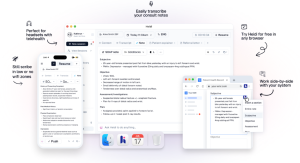Registered Behavior Technician Certification Practice Exam: Everything You Need to Know to Pass the RBT Test with Confidence

In recent years, the demand for professionals in the field of Applied Behavior Analysis has grown significantly. Among the most essential roles in this area is that of the Registered Behavior Technician, a paraprofessional who works directly with individuals receiving behavioral interventions. Many people searching for career opportunities in healthcare and education are drawn to this rewarding path, often beginning their journey with rbt certification online.
What is a Behavior Technician?
A Behavior Technician is a professional trained to provide direct therapy to individuals with developmental, behavioral, or learning challenges. Most RBTs work with children diagnosed with autism spectrum disorder, but the role also extends to supporting individuals with other developmental disabilities or behavioral issues.
Responsibilities of a Behavior Technician
The role of a Behavior Technician is hands-on and client-focused. Core responsibilities include:
- Implementing Behavior Plans: Following treatment strategies designed by a BCBA to teach communication, social, and daily living skills.
- Collecting Data: Recording accurate information on client progress to track improvements and make adjustments.
- Reinforcing Positive Behaviors: Using evidence-based techniques to encourage desired behaviors
- Reducing Challenging Behaviors: Assisting clients in managing behaviors that interfere with learning or daily life.
- Supporting Families: Helping caregivers understand strategies that can be applied at home.
- Collaboration: Communicating regularly with supervisors and other professionals to ensure treatment consistency.
This balance of clinical responsibility and compassionate care makes Behavior Technicians an essential part of the therapy team.
RBT Certification Online: Flexible Training Options
The rise of rbt certification online programs has made it easier for people to enter the field. Online training offers:
- Flexibility: Learn at your own pace, making it ideal for working professionals or students.
- Accessibility: Available from anywhere, removing geographical barriers.
- Affordability: Many online providers offer cost-effective training compared to in-person programs.
- Comprehensive Content: Online programs cover all required modules, often with interactive lessons, quizzes, and video demonstrations.
While online training provides convenience, it’s important to choose programs approved by the BACB to ensure the training meets certification standards.
Skills Needed to Succeed as a Behavior Technician
Being an RBT requires a combination of technical knowledge and personal qualities. Successful Behavior Technicians often possess:
- Patience: Essential when working with clients who may struggle with communication or behavioral challenges.
- Empathy: Understanding the perspective of clients and their families.
- Communication Skills: Clear communication with clients, families, and supervisors.
- Problem-Solving Ability: Adjusting techniques to fit the needs of each individual.
- Attention to Detail: Accurate data collection and adherence to treatment protocols.
- Resilience: Managing the emotional and physical demands of the role.
These skills not only make an RBT effective but also ensure clients receive consistent, compassionate care.
Career Opportunities for Behavior Technicians
The demand for Behavior Technicians is strong, with opportunities available across various settings, including:
- Schools: Supporting students with behavioral or learning challenges.
- Private Clinics: Working with children and families in ABA therapy centers.
- Hospitals and Healthcare Facilities: Assisting patients with developmental disabilities.
- In-Home Therapy: Providing therapy in a client’s natural environment.
- Community Programs: Supporting individuals in social or vocational training settings.
Many RBTs choose this role as a stepping stone to further careers in ABA, psychology, or special education.
Benefits of Becoming a Behavior Technician
Working as a Behavior Technician offers unique rewards, such as:
- Making a Difference: Directly improving the quality of life for clients and their families.
- Career Growth: Opportunities to advance into supervisory or analyst roles with further education.
- Job Stability: Consistent demand for ABA services ensures steady employment opportunities.
- Transferable Skills: Communication, patience, and problem-solving are valuable in many career paths.
- Flexible Work Settings: Options to work in schools, clinics, homes, or community centers.
These benefits make the role appealing not just as a career, but as a meaningful way to contribute to society.
Challenges of Being a Behavior Technician
Like any career, working as a Behavior Technician comes with challenges:
- Emotional Demands: Supporting individuals with significant challenges can be stressful.
- Physical Demands: Sessions may involve movement, play, or managing challenging behaviors.
- High Responsibility: RBTs must follow ethical and clinical guidelines consistently.
- Burnout Risk: Long hours or emotionally intensive cases can lead to fatigue.
Recognizing these challenges helps new RBTs prepare and develop coping strategies, such as seeking supervision support, practicing self-care, and maintaining work-life balance.
Conclusion
A career as a Behavior Technician offers the chance to make a lasting impact on the lives of individuals and families while entering a profession with strong growth potential. The journey begins with training, often through rbt certification online, followed by supervised practice, assessment, and examination.
While the work can be demanding, it is also deeply rewarding—providing opportunities for personal growth, professional development, and meaningful contributions to society. For those passionate about helping others, becoming a Registered Behavior Technician is not just a job, but a pathway to making a difference every single day.



